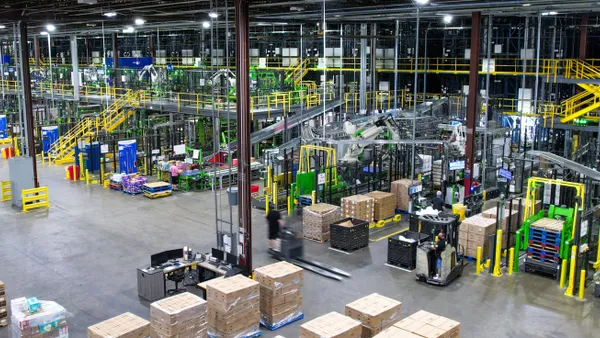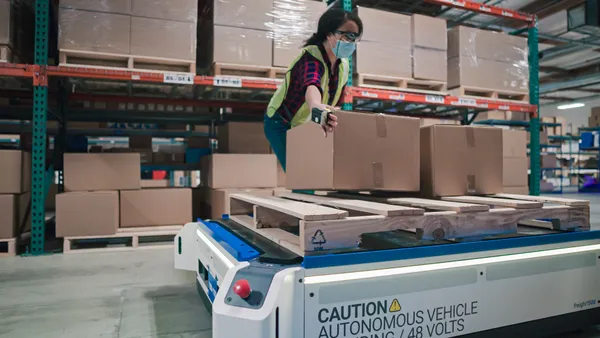Dive Brief:
- More than two-thirds of warehouse managers say people are the top priority in their operations, even as technology continues to make waves in headlines and at conferences, according to a recent survey by the Warehouse Education and Research Council (WERC).
- In fact, the findings from the survey of 549 industry professionals suggest "that companies that focus on people perform better on almost every metric across the DC Measures study," WERC wrote in a section of its report, titled, "People still reign supreme!"
- WERC conducts the annual survey to create a benchmark for best-in-class performance on key metrics. This year, five of the 12 top metrics used by warehouses today were employee-focused.
Dive Insight:
This year's DC Measures report turned the warehouse narrative on its head, as it revealed the industry is spurning even established technologies and focusing instead on the effective use of its people to serve the supply chain.
"In an age where process improvement and technological advancement takes almost every headline, our findings suggest that people are still the critical link that keeps the supply chain running," WERC wrote in its report. That said, "the huge focus on employees is something new for us to witness."
The established narrative was that a renewed focus on labor in the warehouse may be a side effect of the tightening labor shortage faced within industrial markets. A recent report found 81% of facilities now rely on contract work, as strong competition from other economic sectors and a surge in logistics labor demand force warehouse recruiters to get creative.
But the WERC report suggests people, not technology, may be facilities' greatest asset, and many have no plans to adopt emerging technology — even ten years from now.
In just one example, one-third of warehouses still have not implemented a warehouse management system (WMS). Yet, voice-directed picking has taken off — could it be because it directly supplements warehouse labor?
"It's time to tap into the brains of our people and not their brawn, especially on the shop floor," WERC wrote as one of its three key takeaways from the report. "To drive consistency, we must focus on continuous improvement and training of employees to utilize those methodologies."














